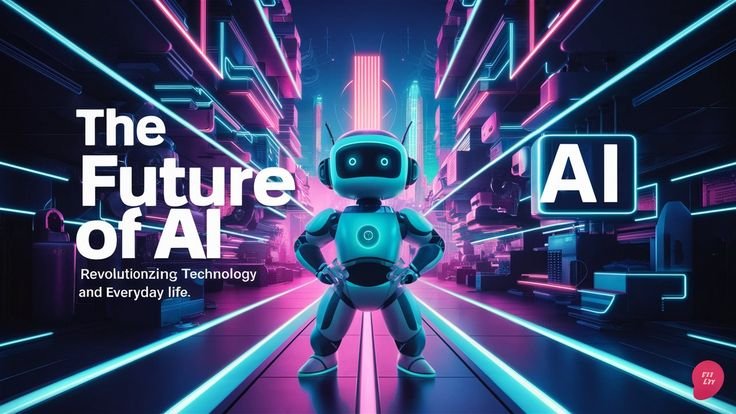
Artificial Intelligence (AI) is no longer just a futuristic concept—it is a powerful force transforming the way we live, work, and interact with the world. From voice assistants in our phones to advanced algorithms driving global industries, AI is shaping the future across nearly every sector of society. As this technology continues to evolve, its impact will only grow deeper and more influential.
One of the most significant ways AI is shaping our future is through automation and efficiency. In industries like manufacturing, logistics, and finance, AI-powered systems are streamlining operations, reducing human error, and saving time and costs. Tasks that once required hours of human labor can now be completed in seconds by intelligent machines.
In healthcare, AI is revolutionizing patient care. Machine learning algorithms can analyze medical data faster and more accurately than ever before, helping doctors diagnose diseases early, predict health outcomes, and recommend personalized treatment plans. AI is also being used in drug discovery and robotic surgery, making healthcare more precise and accessible.
Education is also being transformed by AI. Intelligent tutoring systems and adaptive learning platforms personalize education based on each student’s strengths and weaknesses. This not only enhances the learning experience but also ensures that education is more inclusive and accessible, even in remote or underserved areas.
Moreover, AI is reshaping our everyday experiences. From smart assistants like Siri and Alexa to recommendation systems on Netflix and YouTube, AI helps us make better decisions, stay organized, and discover content tailored to our interests. Self-driving cars, facial recognition, and smart home technology are further examples of AI becoming embedded in daily life.
However, with these advancements come serious ethical and social challenges. Concerns about privacy, algorithmic bias, job displacement, and the potential misuse of AI in surveillance or warfare must be addressed. It is essential that governments, industries, and communities work together to ensure AI is developed and used responsibly.
In conclusion, Artificial Intelligence is undoubtedly shaping our future in powerful and transformative ways. While the possibilities are vast and exciting, we must also remain thoughtful and cautious in how we design, implement, and regulate this technology. If used wisely, AI has the potential to solve some of humanity’s biggest problems and create a better, smarter world for all.

